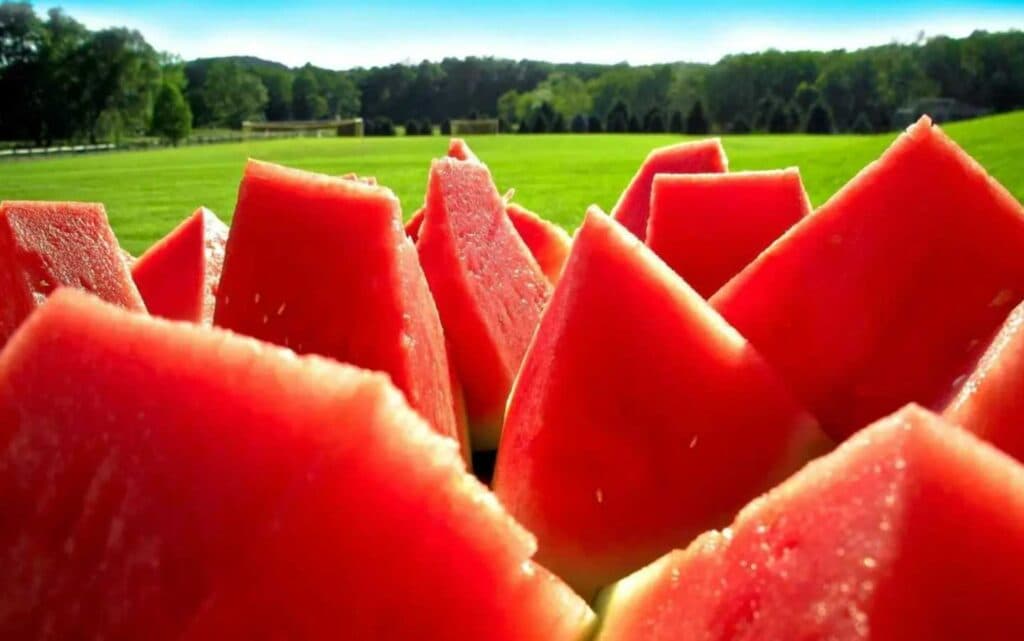What is calcium nitrate fertilizer and its application- how to use it?

What is calcium nitrate(CaNo3 2)?
Calcium nitrate fertilizer is an inorganic salt with the chemical formula Ca(NO3)2. It is usually a white crystalline powder and comes in two different crystal forms. Calcium nitrate is easily soluble in water, ethanol, methanol and acetone, but insoluble in concentrated nitric acid. It decomposes when heated to 160°C, producing ammonia gas, and completely decomposes at about 500°C. Calcium nitrate is oxidizing, giving off oxygen when heated, and may ignite or explode when exposed to organic matter or sulfur.
What is calcium nitrate(ca no3 2) used for?
In agriculture, calcium nitrate fertilizer is a quick-acting fertilizer, especially suitable for acidic soils. It provides nitrate nitrogen and water-soluble calcium, which helps crops absorb nutrients, enhances stress resistance, promotes early maturity, and improves the quality of fruits and vegetables. Calcium nitrate is widely used in agriculture as basal application, topdressing, flushing and foliar spraying, and can also be used in nutrient solutions for soilless cultivation.
What are the functions of calcium nitrate fertilizer ca no3 2 4 h2o?
Ca no3 2 4 h2o Provides Nitrogen and Calcium:
Calcium nitrate fertilizer CaNo3H2O contains nitrate nitrogen and water-soluble calcium, which are essential for plant growth and development. Nitrogen is the basic component for building plant proteins and nucleic acids, while calcium is involved in various physiological processes such as cell wall formation, cell division, root growth, and fruit formation.
CaNo3H2O Promote crop growth:
Calcium nitrate can quickly supplement nitrogen and calcium, help crops absorb nutrients, enhance stress resistance, promote early maturity, and improve the quality of fruits and vegetables.
Ca no3 2 4 h2o Adjust soil pH:
Adjust soil pH: The pH value of calcium nitrate is usually neutral or alkaline, which can neutralize acidic soil, improve the acid-base environment of the soil, and provide more suitable growth conditions for plants.
Ca no3 2 4 h2o Improve the physical properties
Improve the physical properties of the soil: The application of calcium nitrate not only does not worsen the physical properties of the soil, but also improves the physical properties of the soil, making it more suitable for plant growth.
What are the advantages of calcium nitrate fertilizer and how to apply it to crops?

Calcium nitrate fertilizer is a new type of compound fertilizer containing nitrogen and calcium. It not only contains nitrate nitrogen, but also better solves the problem of poor calcium mobility and difficulty in dissolving in water. It can improve the soil and increase the aggregate structure of the soil. It does not clump, quickly replenishes nitrogen and calcium to apples, improves soil nitrogen and calcium deficiency, promotes normal growth and development of corps, reduces production costs, and increases the income of fruit farmers.
Small volatilization loss and high utilization rate:
The nitrogen loss of urea and ammonium bicarbonate during storage and use is 40-50%. The nitrate nitrogen contained in calcium nitrate can be directly absorbed by apples without soil conversion. The volatilization loss of nitrogen is small. It has a fast fertilizer effect when used as base fertilizer and top dressing. It is an environmentally friendly fertilizer that quickly replenishes nitrogen for apples.
Small volatilization loss and high utilization rate:
The nitrogen loss of urea and ammonium bicarbonate during storage and use is 40-50%. The nitrate nitrogen contained in calcium nitrate fertilizer can be directly absorbed by apples without soil conversion. The volatilization loss of nitrogen is small. It has a fast fertilizer effect when used as base fertilizer and top dressing. It is an environmentally friendly fertilizer that quickly replenishes nitrogen for apples.
what are the effects of calcium nitrate fertilizer uses on plants

- Promote growth: The nitrogen and calcium in calcium nitrate play an important role in the healthy growth of crops. Nitrogen can promote the growth and development of plants, while calcium helps in the development of cell walls and increases plant disease resistance and adaptability.
-
Improve the soil: Calcium nitrate can effectively improve the pH of the soil, improve aeration and water-holding capacity, promote the growth and reproduction of beneficial bacteria in the soil, and form a good soil ecosystem.
-
Improve fruit quality: Calcium nitrate has a good effect on increasing the color and sugar content of fruits. It can also enhance the stress resistance of crops, promote early maturity, and improve the storage stability of fruits.
-
Prevent and control pests and diseases: The nitrate component in calcium nitrate helps to kill harmful microorganisms and viruses in the soil, reduces the risk of plant infection, and can also play an insecticidal effect to a certain extent.
-
Calcium Supplement: Calcium nitrate fertilizer is particularly suitable for quickly replenishing calcium in plants, which is very important for many crops, especially for those plants growing in acidic soil that is deficient in calcium
How to grow watermelons using calcium nitrate fertilizer?

During the seedling raising period:
Put 3-5 seeds on each nutrient bowl during seedling raising. The use of calcium to promote cell elongation and division can effectively promote the growth of new roots in watermelon, especially the increase of fibrous roots. At the same time, calcium has the function of stabilizing cell membranes and cell walls, which can effectively prevent damping-off and blight in the seedling stage.
Used as Base fertilizer:
Add 10kg-20kg/acre of calcium nitrate fertilizer to the base fertilizer. It can effectively reduce the cracked vines in the watermelon vine extension period, thereby reducing the occurrence of vine blight; at the same time, it can reduce the number of cracked melons and hollow melons in the first batch of watermelons. Data from Norwegian Hydro’s research institute in Germany show that calcium can effectively reduce hollow, crystal, and cracked melons and increase the storage period of watermelons.
What crops is calcium nitrate fertilizer suitable for? What plant likes ca nitrate?
Calcium nitrate fertilizer is suitable for a variety of crops, especially sugar beets, potatoes, barley and hemp. Calcium nitrate is also suitable for fruits and vegetables, which can enhance the stress resistance of crops, promote early maturity, and improve the quality of fruits and vegetables. It can be used as basal application, top dressing, flush application and foliar spray, and is also suitable for nutrient solution in soilless cultivation. The use of calcium nitrate can prevent physiological diseases caused by calcium deficiency, such as navel rot of tomatoes and peppers, leaf scorch of lettuce and cabbage, and deformities of cucumbers, etc.
How long is the effectiveness of calcium ammonium nitrate fertilizer?
The fertilizer effectiveness period of calcium ammonium nitrate varies according to different uses. When used as a nitrogen fertilizer, its effectiveness period is about 30 to 45 days; when used as a calcium fertilizer, its effectiveness period is about 15 to 30 days. It should be noted that the length of the fertilizer effectiveness period is related to soil and weather conditions. For example, if the soil is sandy or there is heavy rainfall, the fertilizer effectiveness period will be shortened accordingly. In addition, calcium ammonium nitrate is generally effective for 1 to 2 years, but correct storage methods are crucial to maintaining the effectiveness of the fertilizer.
What are the two common ways to use calcium nitrate fertilizer?

Use as base fertilizer:
According to the nutrient content of the soil, the amount of fertilizer applied determines the effectiveness of the base fertilizer. For example: cucumbers, tomatoes, watermelons, peppers, eggplants, etc., one acre of land requires 40 to 50 kilograms. Leafy vegetables: such as Chinese cabbage, spinach, celery, etc. Generally, 30 to 35 kilograms per acre of land can be used. For fruit trees, apply 40 to 60 pounds per acre of land.
Use calcium nitrate as a top dressing:
In addition to the use of base fertilizer, top dressing can also be used. However, there are two ways to top-dressing fertilizer. One is traditional trenching or drilling deep holes. The second is foliar top dressing. The traditional top-dressing method for fruit trees, solanaceous fruits, and melons is to apply 20 to 30 pounds of top dressing on the soil during the early flowering period, and 30 pounds per acre for leaves and rhizomes. You can also choose to spray top dressing on the leaves, mainly It is also a matter of concentration. Generally, the concentration of fruit trees is 500 times, while the concentration of vegetables is 600-700 times. Fertilizer spraying can be used from the seedling stage onwards, with an interval of 15 to 20 days and continuous spraying of 2 to 3 times.
What is the difference between calcium ammonium nitrate and calcium nitrate?
Calcium ammonium nitrate fertilizer and calcium nitrate fertilizer can quickly replenish nitrogen and calcium, and are suitable for acidic soils. However, remember that calcium nitrate cannot be used in paddy fields, because calcium nitrate is nitrate nitrogen and is easily lost with water. It cannot be mixed with fresh manure or compost, as it will cause calcium nitrate to decompose into nitric acid, resulting in loss of fertilizer nutrients.
What is calcium ammonium nitrate fertilizer?
Calcium ammonium nitrate fertilizer is an improved product of ammonium nitrate. Because ammonium nitrate is flammable and explosive and unsafe to transport, its use was banned in our country, so it was improved abroad. As a fertilizer, its nitrogen content is not as good as ammonium nitrate, but it is not easy to agglomerate. , good dispersion.
Which one is better, calcium nitrate or calcium ammonium nitrate?
Calcium ammonium nitrate fertilizer contains a large amount of calcium carbonate and has good effects when used as top dressing on acidic soil. When applied in paddy fields, its fertilizer efficiency is slightly lower than that of ammonium sulfate with the same amount of nitrogen, while when applied in dry land, its fertilizer efficiency is similar to ammonium sulfate. The cost of nitrogen in calcium ammonium nitrate is higher than that in ordinary ammonium nitrate. As a low-concentration fertilizer, calcium ammonium nitrate is a physiologically neutral fertilizer. Long-term application has a good effect on soil properties. It can be used as top dressing on cereal crops.
Is calcium nitrate fertilizer good for grass?
The effect of calcium nitrate on grass is to provide sufficient nitrogen content. Generally, 200-300lbs of calcium nitrate combined with appropriate temperature and moisture can make grass grow very well. Nitrogen fertilizer plays a very important role in the life activity, color and quality of lawns. In general, most lawn plants, with the exception of legumes, must meet their nitrogen fertilizer requirements.
How do I use calcium nitrate fertilizer on my lawn?
Calcium nitrate fertilization methods for lawns include spraying and spreading. Spraying is to dilute fertilizer with water into a solution and spray it on the lawn surface through sprinkler irrigation or other equipment, while spreading fertilizer is to spread all fertilizers directly on the surface of the lawn. When spreading fertilizer, in order to maintain the uniformity of the lawn, the fertilizer needs to be spread evenly on the lawn surface.
Does calcium nitrate raise soil pH?
Calcium nitrate is a commonly used soil conditioner and has a good effect in regulating soil pH. Calcium nitrate can be decomposed by soil microorganisms to produce nitric acid and calcium ions. Nitric acid can combine with cations such as calcium, magnesium, and ammonium in the soil to form salts, thereby reducing the acidity of the soil. At the same time, it can also provide the calcium needed by plants to promote plant growth and health. Therefore, calcium nitrate is widely used to improve and regulate soil fertility.
Is calcium nitrate a straight fertilizer? Does calcium nitrate dissolved in water?
Calcium nitrate fertilization generally does not require watering. Calcium nitrate [Ca(NO3)2·4H2O] is usually obtained by neutralizing limestone and nitric acid. It can also be a by-product of nitric phosphate fertilizer production. It contains 13% to 15% nitrogen. The appearance of calcium nitrate is white or slightly tinged. Small crystals of other colors are highly hygroscopic, easy to agglomerate, and easily soluble in water. The aqueous solution shows an acidic reaction, and the solubility is minimally affected by temperature. It is a physiological alkaline fertilizer.
Is calcium nitrate good for tomatoes?
Yes, it is good for tomatoes. Tomatoes have a greater demand for calcium nitrate during their growth, especially during the fruit enlargement and maturity stages. Lack of calcium will lead to reduced tomato fruit quality, prone to peel cracks, fruit softening and other problems. Therefore, timely supplementation of the calcium required by tomatoes is the key to ensuring tomato growth and yield.
Calcium Nitrate Price 2024:
The price of calcium nitrate in China is divided into two types. The price of large-package ton bags is 300 US dollars per ton, excluding freight, and the price of small-package 25kg bags of calcium nitrate is 10 US dollars per bag. This price is based on the price on April 16, 2024. Please refer to the price on that day for the specific price.

